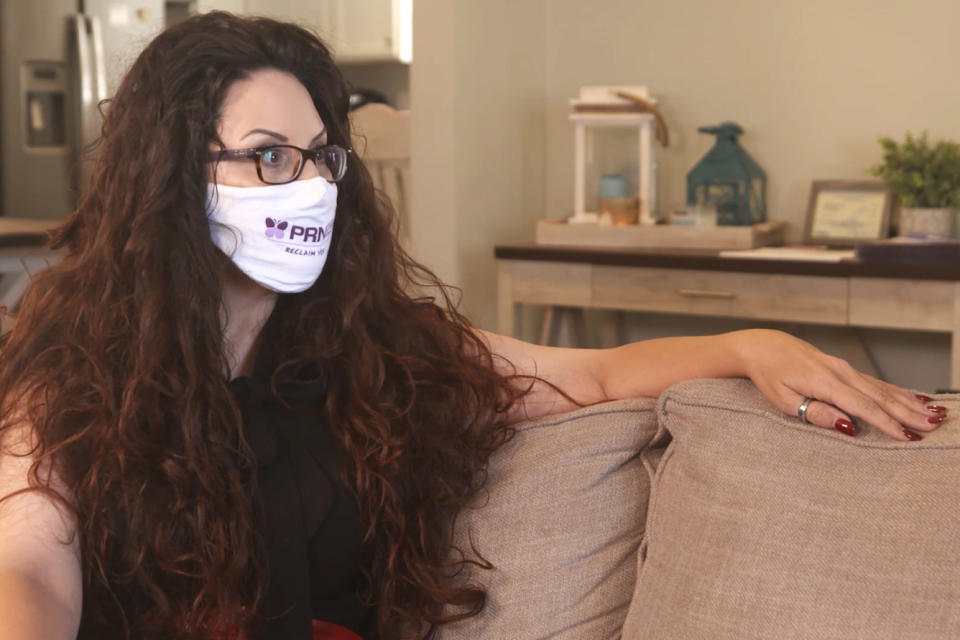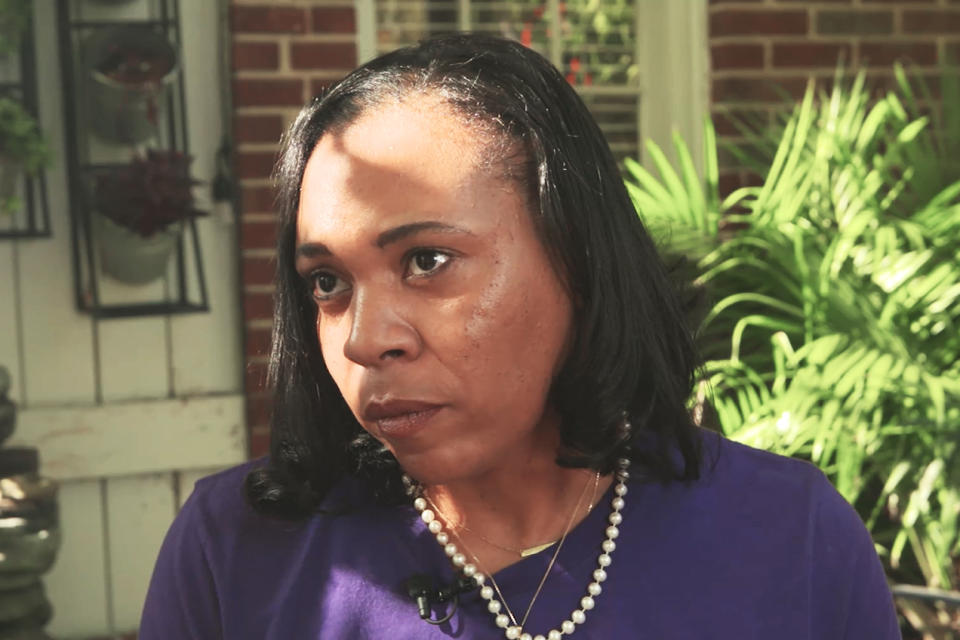A peer-run center in North Carolina offers alternative for psychiatric care
CHARLOTTE, N.C. — After Becky Bagley made plans to take her own life, involuntary commitment to a psychiatric facility meant she submitted to a strip search before she spent days staring down white walls, isolated, feeling like a liability.
She’s now on the peer support staff at the Retreat @ the Plaza, a peer-run respite in North Carolina designed to be an alternative to hospitalization for those experiencing mental health distress.
The house-like setting is starkly different from the hospital. Water features and greenery adorn the outdoor patios, while guests can gather in the open kitchen or the sitting area filled with plush couches and chairs and inspirational prints hanging on the walls. The doors stay unlocked, and guests may come and go as they please.
In this space, Bagley is treated as an expert because of her experience of struggle, rather than a liability.
“Here, you immediately come in and everything feels so intentional: the light, the sounds, the love,” Bagley said recently in an interview at the respite. “When they listen, they listen to understand. We’re not trying to diagnose or label you — it’s up to you. It’s empowering. I just know this place is exactly what I needed at that time.”

That was Cherene Caraco’s vision when she launched the state’s first peer-run respite during the coronavirus pandemic. Caraco, the founder and CEO of Promise Resource Network, a nonprofit organization that runs the center, is also an expert by experience.
She is a sexual assault and trauma survivor, and she said firsthand knowledge is key to a successful peer-run respite. The center is fully staffed by people who have struggled through such issues as mental illness, psychiatric hospitalizations, homelessness, incarceration, substance use and domestic violence.
“We know what it’s like to walk into a space and feel vulnerable, to feel like there is no hope and to be seeking something that is not just an illness pathology message,” Caraco said. “There is a wisdom of lived experience that cannot be duplicated by professional experience or academic achievements.”

The concept isn’t new, but it’s rarely implemented. There are just 31 respites across 13 states. Some criticism centers on trust of the staff members. A 2018 study assessing consumer experience of respites noted that some people critical of the model questioned the credibility of staff members and whether those who have experienced their own mental illness or trauma should be responsible for others. But the study indicates that that opinion is in the minority.
Toya Houston has been on both sides of the Peer Resource Network’s services. Diagnosed with bipolar disorder, she is now a member of the peer support staff.
“I can offer patience. Sometimes people just want to talk,” Houston said. “I remember wishing I wasn’t looked at like a patient but as a person. Here, I’m looked at as a person. My education doesn’t matter. What matters is what I’ve lived, what I’ve experienced ... which means I can help someone else.”

Caraco, who wants the retreat to help fill a hole in the behavioral health system, questions the tendency to resort to involuntary commitment to psychiatric hospitals. Forced psychiatric treatment is on the rise nationally, with the rate of involuntary commitment having increased three times faster than the population growth in the 25 states where such data are available.
The system prioritizes pathologizing illness over promoting wellness and opportunity, Caraco said.
“We don’t have a system that’s designed to protect and nurture the individual that’s having a mental health emergency,” she said. “We have a system that’s designed to protect the rest of us from the person with mental illness.”
Guests are asked to focus on the eight dimensions of wellness guidance from the federal Substance Abuse and Mental Health Services Administration: emotional, financial, social, spiritual, occupational, physical, intellectual and environmental. If any one dimension is off-balance, it can affect a person’s physical and mental health, according to the model.
The cost effectiveness for providers is also an advantage, Caraco said. A day at the Retreat @ the Plaza costs about $150, while a day at a state-run psychiatric hospital in North Carolina averages $1,300.
During their 10-day stays, guests can use the space as needed to consult with peer-support staff members, choose from dozens of classes and workshops or just spend time with one another. Every guest gets a gift card for groceries, and they often cook together every evening.
Donations and grants have allowed the center to operate free for guests in its first year. Since it opened in September, the three guest bedrooms have been consistently full, helping people like Jeremy Fuller, who has bounced around several homeless shelters across the country in recent years, find his footing.

“There’s no Catch-22 here, no stigma,” Fuller said as he sat on the patio prepping for a job interview. “Having people who have had similar lived experiences is better than dealing with somebody who just got their education from a book. Everyone is really easygoing and supportive. I’ve honestly met more supportive people than I have in any other area of life.”

